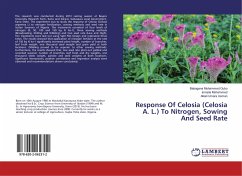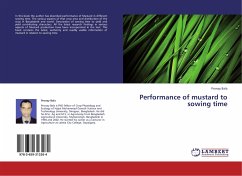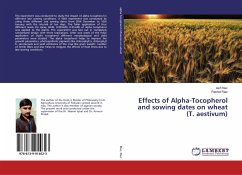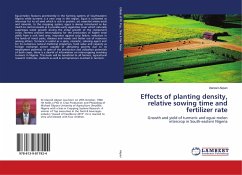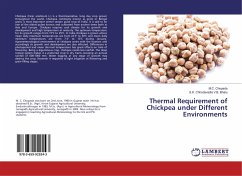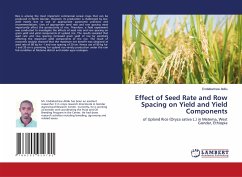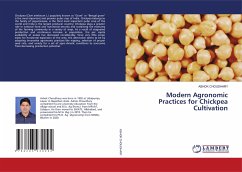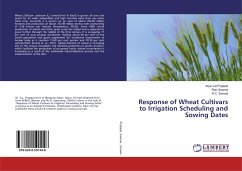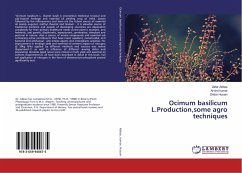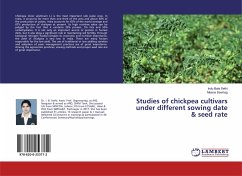
Studies of chickpea cultivars under different sowing date & seed rate
Versandkostenfrei!
Versandfertig in 6-10 Tagen
27,99 €
inkl. MwSt.

PAYBACK Punkte
14 °P sammeln!
Chickpea (Cicer arietinum L.) is the most important rabi pulse crop. In India, it accounts for more than one third of the area and about 50% of the production of pulses. India accounts for 65% of the world acreage and 67% production of chickpea at present. Its high nutritive value can be judged by the fact that it contains 20% protein, 5% fats and 55% carbohydrates. It is not only an important source of protein in human diets, but it also plays a significant role in maintaining soil fertility, through biological nitrogen fixation.Despite its economic and nutritive importance, the yield of chic...
Chickpea (Cicer arietinum L.) is the most important rabi pulse crop. In India, it accounts for more than one third of the area and about 50% of the production of pulses. India accounts for 65% of the world acreage and 67% production of chickpea at present. Its high nutritive value can be judged by the fact that it contains 20% protein, 5% fats and 55% carbohydrates. It is not only an important source of protein in human diets, but it also plays a significant role in maintaining soil fertility, through biological nitrogen fixation.Despite its economic and nutritive importance, the yield of chickpea is very low in India. There are many factors responsible for the low yield. The use of traditional or low yielding varieties and adoption of poor management practices are of great importance. Among the agronomic practices, sowing methods and proper seed rate are of great importance.



